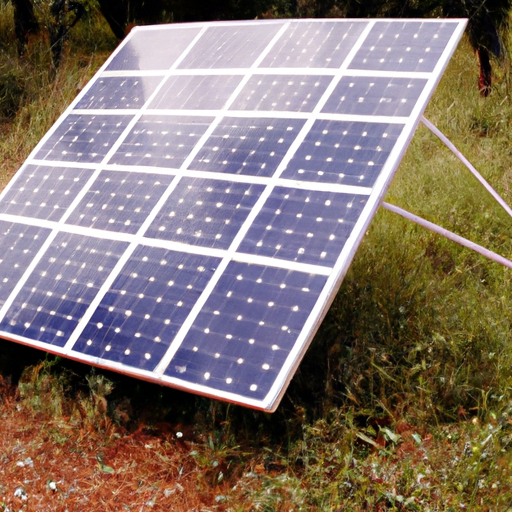So, have you ever thought about living off the grid? You know, disconnecting from the hustle and bustle of modern life and embracing a more simplistic and sustainable lifestyle? Well, let me tell you, it’s a decision I made a few years ago and it has truly been a transformative experience. In this article, I’m going to share with you why I chose to live off the grid, and trust me, there are plenty of reasons!
Living off the grid means different things to different people, but for me, it’s all about self-sufficiency and reducing my impact on the environment. It’s about generating my own power through solar panels, harvesting rainwater for household use, and growing my own food in a small garden. By doing so, I’ve not only minimized my reliance on the grid, but I’ve also gained a sense of independence and a deeper connection with nature.
So why did I decide to go off-grid in the first place? Well, the fast-paced and consumer-driven society we live in had begun to take a toll on me. I found myself constantly stressed and overwhelmed by the demands and expectations of modern living. I longed for a simpler, more meaningful way of life. The idea of being able to slow down, focus on what truly matters, and live in harmony with nature became irresistible to me.
Living off the grid is not without its challenges, but let me tell you, it’s worth it. In this article, we’ll delve deeper into the practicalities of off-grid living, as well as the benefits and drawbacks. Whether you’re just curious about the lifestyle or seriously considering making the switch yourself, there’s plenty to learn and explore. So, join me as we dive into the world of off-grid living and discover a different way to live. Living off grid is a lifestyle choice that has become increasingly popular in recent years. More and more people are choosing to disconnect from the traditional power grid and live self-sufficiently, relying on renewable energy sources and sustainable practices instead. In this article, we will explore what it means to live off grid, the advantages and challenges of this lifestyle, and the reasons why I personally chose to live off grid.
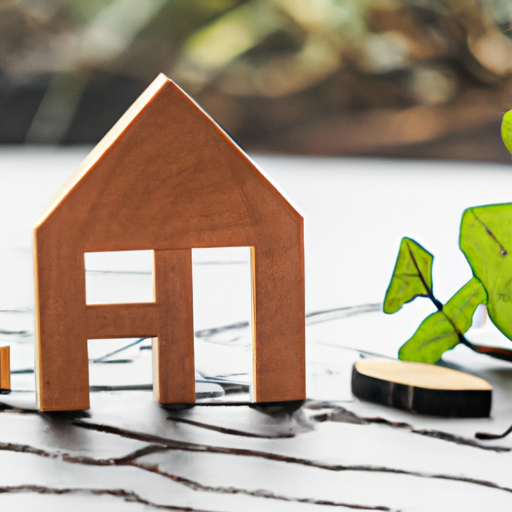
What does it mean to live off grid?
Living off grid simply means not being connected to the traditional power grid and relying on alternative sources of energy. This can include generating electricity through solar panels or wind turbines, using propane or natural gas for heating and cooking, and implementing sustainable practices for water and waste management.
The advantages of off-grid living
There are numerous advantages to living off grid. One of the biggest benefits is environmental sustainability. By generating your own energy and reducing dependence on non-renewable resources, you can significantly lower your carbon footprint and contribute to a healthier planet.
Another advantage is the ability to reduce dependence on the grid. Power outages and rising utility costs are common concerns for many people. By living off grid, you have the freedom to generate your own power and become less reliant on external factors.
Living off grid also allows you to embrace a simpler, self-sufficient lifestyle. This lifestyle promotes a sense of independence, as you become more self-reliant for your basic needs. It also encourages a closer connection with nature and a deeper appreciation for the resources it provides.
Finally, living off grid offers an escape from the pressures of modern society. With less reliance on technology and a focus on sustainable practices, you can create a peaceful and stress-free environment that promotes mental and physical well-being.
Challenges faced in off-grid living
While living off grid offers many advantages, it does come with its challenges. One of the main challenges is limited access to amenities. Depending on your location, you may have limited access to grocery stores, medical facilities, and other essential services. This requires careful planning and preparation to ensure you have everything you need in order to thrive off grid.
Maintaining a reliable off-grid power and water supply is another challenge. Depending on your energy system and water sources, you will need to carefully manage your resources to ensure they are sufficient for your needs. This may involve installing backup systems or implementing water conservation methods.
Managing waste disposal responsibly is also a challenge in off-grid living. Without access to traditional waste management services, you will need to find alternative methods such as composting or recycling to reduce your environmental impact.
Adapting to extreme weather conditions is another challenge. Off-grid homes often need to withstand harsh weather conditions, such as strong winds, heavy snowfall, or extreme heat. Building structures that are resilient to these conditions is essential for a successful off-grid lifestyle.
Types of off-grid living setups
There are various types of off-grid living setups, depending on individual preferences and available resources. Some people choose to live in remote areas, far away from civilization, while others opt for a more suburban or rural setting. The choice of alternative energy sources also varies, with solar power and wind turbines being the most common options.
Reasons for choosing to live off grid
Environmental sustainability
One of the primary reasons people choose to live off grid is to reduce their environmental impact. By generating clean, renewable energy and practicing sustainable living, individuals can significantly lower their carbon footprint and contribute to a more sustainable future.
Reducing dependence on the grid
For many, the desire to reduce dependence on external factors, such as power outages or rising utility costs, is a motivating factor in choosing off-grid living. By generating their own power and becoming self-sufficient, individuals gain greater control over their energy consumption and costs.
Embracing a simpler, self-sufficient lifestyle
Living off grid offers the opportunity to embrace a simpler, self-sufficient lifestyle. By growing your own food, practicing sustainable agriculture, and relying on alternative energy sources, you can become less reliant on external systems and strengthen your connection with nature.
Escaping the pressures of modern society
Another reason for choosing off-grid living is to escape the pressures and stresses of modern society. Living off grid allows individuals to disconnect from technology, reduce distractions, and create a peaceful and harmonious environment that promotes overall well-being.
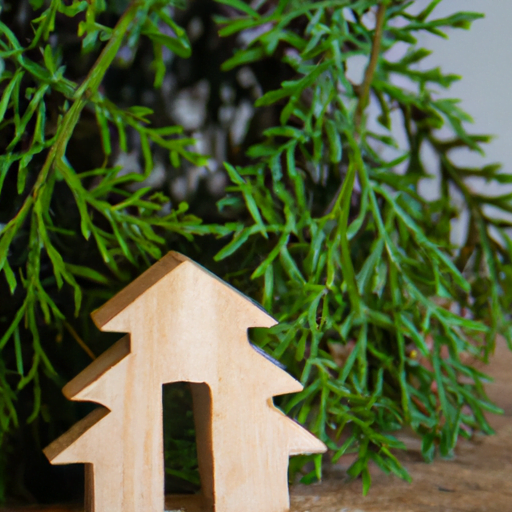
The journey to off-grid living
Researching and planning the transition
The journey to off-grid living begins with thorough research and planning. It is important to research different off-grid living setups, energy systems, and sustainable practices to determine what will work best for your needs. Additionally, planning involves considering factors such as location, accessibility, and available resources.
Selecting the ideal off-grid location
Choosing the right location for your off-grid home is crucial. Factors to consider include access to natural resources, climate suitability, proximity to amenities, and legal considerations. It’s important to find a location that aligns with your lifestyle goals and offers the necessary resources for sustainable living.
Sourcing and installing alternative energy systems
One of the most important aspects of off-grid living is sourcing and installing alternative energy systems. This may involve installing solar panels, wind turbines, or other renewable energy sources. It is important to carefully assess your energy needs and design an energy system that is efficient and sufficient for your needs.
Implementing sustainable water and waste management
In addition to energy systems, sustainable water and waste management are essential for off-grid living. This may involve implementing rainwater harvesting systems, installing composting toilets, or practicing responsible waste disposal. It’s important to find sustainable solutions that minimize environmental impact and conserve resources.
Thriving off grid
Building a self-sufficient homestead
To thrive in off-grid living, building a self-sufficient homestead is key. This may include constructing energy-efficient and sustainable homes, establishing gardens or permaculture systems for food production, and creating infrastructure for water and waste management. It’s important to prioritize self-sufficiency and resilience in every aspect of your off-grid lifestyle.
Growing own food and practicing sustainable agriculture
Growing your own food and practicing sustainable agriculture are integral parts of off-grid living. By growing your own fruits, vegetables, and herbs, you can ensure a fresh and healthy food supply and reduce reliance on external sources. Additionally, implementing sustainable agriculture practices such as crop rotation and companion planting can increase soil fertility and promote ecosystem health.
Skills and knowledge required for off-grid living
Off-grid living requires certain skills and knowledge to be successful. These may include knowledge of sustainable building practices, renewable energy systems, water conservation methods, and sustainable agriculture techniques. Additionally, basic survival skills such as first aid, foraging, and food preservation can be beneficial in living off grid.
Connecting with like-minded off-grid communities
Connecting with like-minded off-grid communities can provide support, resources, and a sense of community in your off-grid journey. It’s important to build relationships with others who share similar values and goals, as they can provide valuable insight and assistance in navigating the challenges of off-grid living.
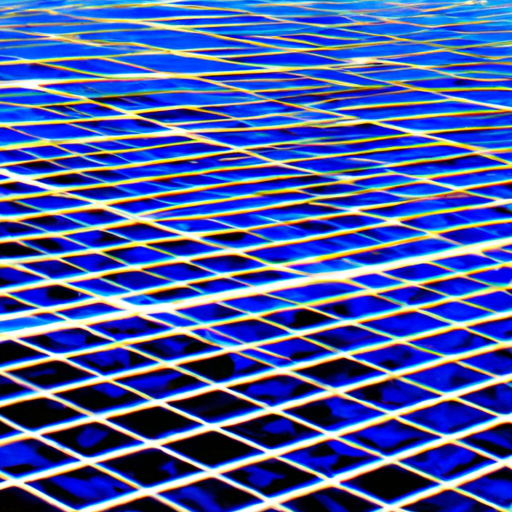
Overcoming off-grid living challenges
Dealing with limited access to amenities
Living off grid often means limited access to amenities such as grocery stores, medical facilities, and entertainment options. It’s important to plan ahead and stock up on essentials, establish alternative sources of food and healthcare, and find creative ways to entertain yourself and your family.
Maintaining reliable off-grid power and water supply
Ensuring a reliable off-grid power and water supply requires careful monitoring, maintenance, and conservation practices. Regularly checking energy systems, conducting repairs as needed, and implementing water conservation methods can help maintain a consistent and sustainable supply.
Managing waste disposal responsibly
Without traditional waste management services, off-grid living requires responsible waste disposal methods. This may involve composting organic waste, recycling where possible, and minimizing overall waste production. Implementing proper waste management practices is essential for environmental sustainability.
Adapting to extreme weather conditions
Off-grid living often means facing extreme weather conditions. This requires adapting to the challenges presented by different seasons, such as ensuring adequate heating in winter or protecting crops from excessive heat in summer. Building resilient structures and cultivating adaptable gardening practices can help navigate these challenges.
Financial aspects of off-grid living
Initial costs and long-term savings
While the initial costs of transitioning to off-grid living can be significant, there are long-term savings to consider. By generating your own energy and growing your own food, you can significantly reduce monthly expenses on utility bills and grocery shopping. Over time, these savings can offset the initial investment.
Investing in renewable energy systems
Investing in renewable energy systems is a crucial aspect of off-grid living. While these systems may have upfront costs, they offer long-term benefits in terms of reduced energy bills and environmental impact. Choosing high-quality equipment and working with reputable installers is important to ensure a reliable and efficient energy system.
Funding off-grid lifestyle without traditional jobs
Living off grid often requires finding alternative sources of income, as traditional jobs may not be readily available in remote locations. This may involve starting a small business, freelancing, or pursuing remote work opportunities. It’s important to think creatively and explore different income-generating options that align with your skills and interests.
Cost-effective off-grid living tips
There are many cost-effective tips and strategies for off-grid living. These include conserving energy by using energy-efficient appliances, optimizing solar panel placement for maximum sunlight exposure, and practicing frugal living by reducing consumption and reusing resources whenever possible. It’s important to find a balance between sustainability and affordability in your off-grid lifestyle.
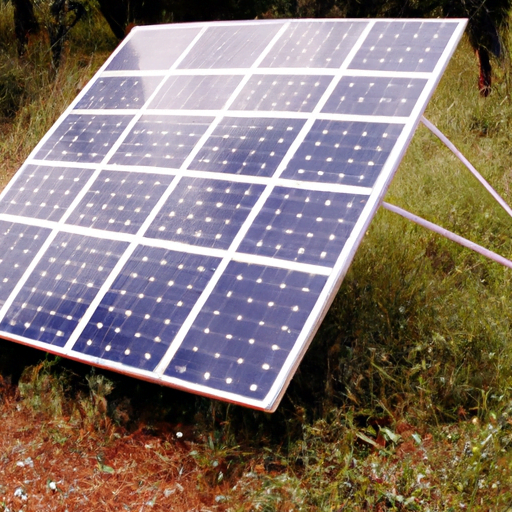
Health and well-being benefits
Living closer to nature and its positive effects
Living off grid allows you to live closer to nature, experiencing its positive effects on your health and well-being. Spending time in nature has been proven to reduce stress, improve mental clarity, and promote overall well-being. Being surrounded by natural beauty provides a sense of peace and tranquility that is often lacking in modern society.
Reducing exposure to environmental pollutants
Living off grid also reduces exposure to environmental pollutants commonly found in urban areas. By choosing to live in a more natural environment, you can breathe cleaner air, avoid exposure to harmful chemicals, and reduce the risk of certain health conditions associated with urban living.
Promoting mental and physical well-being
The simplicity and self-sufficiency of off-grid living promote both mental and physical well-being. The reduced stress and increased connection with nature contribute to a healthier mindset, while the physical labor of homesteading and sustainable agriculture provide regular exercise and promote physical health.
Creating a stress-free and peaceful environment
The off-grid lifestyle offers a stress-free and peaceful environment. Being disconnected from technology and modern distractions allows for greater focus and presence in the present moment. The slower pace of life allows for more time spent with loved ones and engaging in activities that bring joy and fulfillment.
Off-grid living challenges in modern society
Legal and regulatory hurdles
Living off grid can present legal and regulatory hurdles, as it may be seen as unconventional or outside the norm. Zoning regulations, building codes, and property rights can vary widely, and it’s important to research and understand the legal aspects of off-grid living in your chosen location.
Societal judgments and misconceptions
Off-grid living can also face societal judgments and misconceptions. Some may view it as an extreme or radical lifestyle choice, while others may simply not understand the motivation behind it. It’s important to be prepared for questions and criticisms, and to educate others about the benefits and values of off-grid living.
Balancing off-grid living with technological needs
Living off grid requires finding a balance between embracing a simpler lifestyle and meeting technological needs. While disconnecting from technology is often a desired aspect of off-grid living, certain technological necessities, such as communication tools or emergency services, may still be required. Finding the right balance is key to a successful off-grid lifestyle.
Educating and inspiring others about off-grid living
As off-grid living becomes more popular, there is a need to educate and inspire others about its benefits. By sharing your knowledge and experiences, you can help dispel myths and misconceptions, and inspire others to consider the off-grid lifestyle as a viable and sustainable option.
Conclusion
In conclusion, I chose to live off grid because of the numerous advantages it offers. The environmental sustainability, reduced dependence on the grid, simpler self-sufficient lifestyle, and escape from the pressures of modern society were all factors that motivated me to make this choice. The journey to off-grid living involves careful research, planning, and implementation of sustainable practices. While off-grid living presents challenges such as limited access to amenities and the need for reliable power and water supply, it is possible to overcome these challenges through careful preparation and adaptation. The financial aspects of off-grid living require initial investment but offer long-term savings and the opportunity to fund the off-grid lifestyle through alternative sources of income. The health and well-being benefits of off-grid living, such as a closer connection with nature and reduced exposure to environmental pollutants, are significant. While there are challenges and hurdles to overcome in modern society, educating and inspiring others about off-grid living is important for its continued growth and acceptance. Ultimately, choosing to live off grid has brought me personal fulfillment, contributed to a sustainable future, and allowed me to embrace a simpler and more independent lifestyle for a happier and healthier life.

